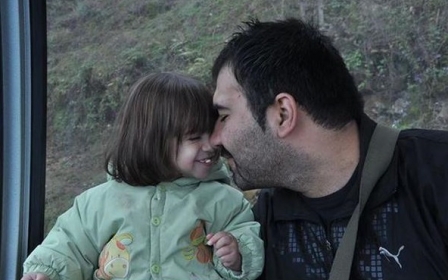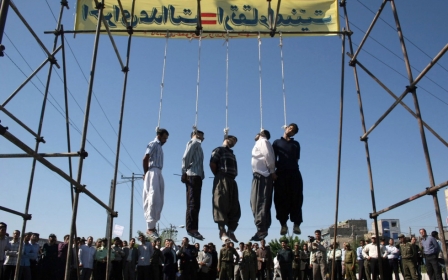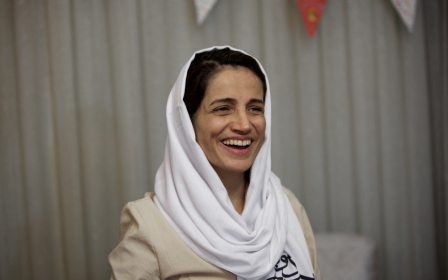Iran urged not to hang Kurd 'tortured to confess' crime

International human rights groups appealed to Tehran on Tuesday to halt its planned execution of a young Iranian Kurdish man who was sentenced to death over a crime he committed as a minor, and following claims that he was tortured to make a confession.
Saman Naseem, 22, is scheduled to be executed on Thursday after being found guilty of membership of the rebel Party of Free Life of Kurdistan (PJAK) and involvement in armed confrontations with the Revolutionary Guards.
Nassem was charged with "enmity against God" and "corruption on earth". He was 17 at the time of his arrest and was sentenced to death in April 2013, allegedly after being tortured.
"Time is running out for Saman Naseem. The fact that Iran is willing to execute a man who was tortured to confess to a crime he is accused of having committed when he was a child shows the state of injustice in the country," said Amnesty International's Middle East and North Africa deputy director Hassiba Hadj Sahraoui.
"These wrongs can never be undone, but it is not too late to immediately stop Saman Naseem's execution and initiate a thorough judicial review of his case," she said in a statement.
The International Federation for Human Rights also demanded a halt to the execution, and called for the overturning of Naseem's death sentence, which it said is illegal under international law.
"The continued detention and ill-treatment of Saman Naseem is unacceptable and is a violation of international law," said FIDH president Karim Lahidji.
"Saman's death sentence must be immediately repealed and he must be given a fair trial that meets international standards."
The FIDH alleged that Naseem was denied access to lawyers at the time of his arrest and that his original conviction was based on "forced confessions obtained through torture".
It said Iran is a signatory to the UN Convention on the Rights of the Child which prohibits the death penalty for juvenile offenders.
Naseem was on hunger strike when the Iranian authorities threatened execution to compel him to give up his protest gesture.
"Resorting to death threats and other punitive measures to quell prisoners’ hunger strikes only serves to underscore how rotten Iran’s criminal justice system is," said Amnesty's Sahraou.
"Instead of dealing out threats of execution against these prisoners, the authorities must commute their death sentences and ensure they are treated humanely," he added.
In October, the United Nations expressed concern about what it described as a "surge in executions" in Iran as part of a worsening human rights situation under President Hassan Rouhani.
In December, Iran was urged not to hang a man sentenced to death for sharing Facebook posts that were deemed blasphemous.
New MEE newsletter: Jerusalem Dispatch
Sign up to get the latest insights and analysis on Israel-Palestine, alongside Turkey Unpacked and other MEE newsletters
Middle East Eye delivers independent and unrivalled coverage and analysis of the Middle East, North Africa and beyond. To learn more about republishing this content and the associated fees, please fill out this form. More about MEE can be found here.




